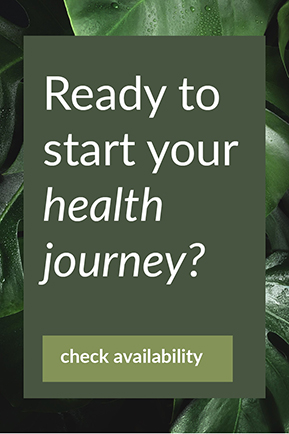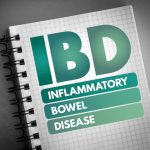The postpartum period, also known as “the fourth trimester”, is a time of immense physical and emotional change, as you not only recover from pregnancy and childbirth, but also move into a brand new phase of life: motherhood. It is an important period for rest, recovery, and rebuilding your nutritional stores after 9 months of growing another human being. This time is a period of continued symbiosis between mother and baby and a special time of bonding, learning, and healing. For many women, the intense demands of growing and birthing a baby can leave you physically and nutritionally depleted – a phenomenon known as postnatal depletion. Postnatal depletion can leave you feeling fatigued and burnt out, and prone to illness, injury, and delayed recovery. This website blog provides you with the some basic tools you need to nourish and replenish yourself as you navigate this transitional phase in your life.
Physical Healing in the Fourth Trimester
Your body has been through a lot in the last 9 months and is now in the important healing and recovery phase. Pregnancy and giving birth are both intense, physically demanding journeys and, depending on your birth experience, you may now have significant physical healing to do. Loss of nutrients and blood following pregnancy and birth, combined with significant sleep deprivation and stress, can leave you in a vulnerable state that can negatively affect your recovery and wellbeing. Your immune system function can also be supressed, and healing may be compromised. For this reason, it’s important to prioritise your healing where possible during this time, to avoid further health issues down the track.
Emotional Healing in the Fourth Trimester
Pregnancy, birth, and new motherhood are periods of considerable emotional upheaval. Perhaps you have journeyed from Maiden to Mother for the first time, or maybe you are learning to mother a newborn whilst also parenting older children, too. Your birth experience can also bring up strong emotions that may need to be processed throughout the fourth trimester period. Not only are there big changes in your life to process, but the hormonal fluctuations that occur post-birth can also contribute to the emotional rollercoaster of the post-partum period. It’s no wonder then that looking after your emotional health is just as important as looking after your physical health at this time.
The Baby Blues
The baby blues is an extremely common experience – between 50-85% of women experience the baby blues, a period of increased emotional sensitivity and teariness, which peaks around 4 or 5 days after giving birth. If you experience the baby blues, give yourself grace and allow yourself to feel your feelings, knowing that you will come back into balance soon.
Post-Natal Depression
Post-natal depression, on the other hand, is a more significant mental health condition that develops up to one year after giving birth. Post-natal depression can be debilitating, yet many mothers delay seeking treatment. While there are many different risk factors for developing perinatal depression, including having a history of depression and other mental health conditions, nutrition certainly plays an important role here. Studies have found that low levels of important nutrients such as vitamin D, selenium, folate, iron, zinc, and fatty acids, are all associated with an increased risk of developing postnatal depression. Many of the dietary strategies in this blog – Click here and provided during my naturopathic consultations will help you to replenish these important nutrients to help you with both your physical and emotional recovery and help reduce your risk of postnatal depression.
Naturopathic Testing in Post-Natal Depletion
If post-natal depletion is suspected, there are a range of tests that may be recommended for you, to help get a clear picture of your current health and to assess for targeted treatment with supplements and herbs. I may look at your iron levels, thyroid, blood sugar levels, B12, folate, vitamin D as an example due to their role in energy, mood and overall recovery.
Dietary Strategies for Post Natal Depletion
From physically recovering from childbirth, to accounting for the increased nutritional demands of breastfeeding, your body is in great need of vital nutrients during this time, and careful nutritional support can be immensely helpful in coping with this stage of life. This blog on nutrients at this stage provides a basic level of guidance as to some of the key nutrients to consider for helping to support your recovery during the months that follow childbirth, as well as some general guidelines for a healthy diet that supports both you and baby. Each person is unique depending on their diet pre and during pregnancy, any issues experienced such as sleep, stress & nausea, so this is a broad overview.
Your energy and nutrient needs are increased during the fourth trimester, as your body undergoes significant healing and recovery with energy needs increased even further if you are breastfeeding so now is not a time for calorie-restriction and losing weight – your priority should be with healing. There are many easy to prepare and nutritious meals on my recipe section of the website which will ensure adequate protein, carbs and fat at this time
Specific Nutrients for Post-Natal Depletion
If you are breastfeeding, depending on the age of your newborn there are certain herbs and supplements that can be prescribed for you however during this time it is very important to make sure that you are obtaining the following nutrients via whole foods as much as possible, and by continuing your prenatal multivitamin. Magnesium, iron, Vitamin D, Zinc, Vitamin C and omega 3 fish oil supplements with vegan options are often prescribed. If you are not breastfeeding, you are then at a stage where more varied and additional herbs & supplements can be prescribed to assist you in restoring your optimal nutrient levels.
Herbs for Post-Natal Depletion
As with supplements, many herbs may not be suitable while breastfeeding, however a range of beautiful herbs are generally considered safe during postpartum and breastfeeding and may be prescribed to assist in your recovery. Some of my favourites are Ashwagandha, Nettle, Oats Seed Shatavari, Skullcap and Reishi.
Galactagogue herbs for breast milk production may also be required if you are having problems with breast milk production which is a common issue for mums and naturopathic herbs to improve volume and flow may include Goat’s Rue, Hops, Fenugreek. Fennel tea is also supportive. Again, self-prescription is never recommended with lactation herbs.
Lifestyle
Enjoy Gentle Daily Movement
Whether you had a vaginal delivery or caesarean section, you are recovering from a major physiological event and should treat your body with care while you heal. Gentle movement each day, such as a gentle walk through the neighbourhood, will help to keep you active without placing undue stress on your body. This can also be a great opportunity to get some vitamin D and to rebalance your cortisol levels at the same time, whilst also being beneficial for baby developing their circadian rhythm. Many women will feel ready to slowly reintroduce exercise after around 6 weeks, however this will depend on your pregnancy, delivery circumstances, and the type of exercise you are wishing to do.
Prioritise Rest
Bonding with baby and resting often should be the priority for these 12 weeks. Delegate tasks to other people in your life as much as possible, so that you can keep your focus where it is needed.
Speak to a Professional
Whether your pregnancy and childbirth experiences were easy and blissful, or perhaps more challenging, there can be a lot mentally and emotionally to unpack from what you have been through. Speaking to a professional can be of tremendous help in working through emotional issues that have come to the surface, or for talking about any negative or challenging experiences you encountered. A psychologist or counsellor is a great place to find. We have wonderful mental health professionals on the team at Performance in Health who can help you, with both in-person and virtual appointments available. View details about our team here.
Additional Tips for The Fourth Trimester and Post-Natal Depletion
- Don’t try to do it all yourself – accept offers of help and have friends and family go food shopping and cook meals for you.
- Listen to your hunger cues and eat when hungry – the fourth trimester is a time to focus on recovery, not weight reduction.
- When you do cook, choose meals that you can easily cook in large batches, so that you can freeze extra portions for later.
References
Amer, C. (2022, June). An RD’s guide to postpartum nutrition, plus easy postpartum meals. https://www.humnutrition.com/blog/postpartum-nutrition/
Ball, L., de Jersey, S., Parkinson, J., Vincze, L., & Wilkinson, S. (2022). Postpartum nutrition: Guidance for general practitioners to support high-quality care. Australian Journal of General Practice, 51(3).
Bone, K. (2003). A clinical guide to blending liquid herbs: Herbal formulations for the individual patient. Elsevier.
Minerva Natural Health and Fertility. (2021, November). Postpartum nutrition goals. https://minervanaturalhealth.com.au/2021/11/14/postpartum-nutrition-goals/
Rochford, T. (2022). Simple postpartum diet and nutrition tips. https://tararochfordnutrition.com/simple-postpartum-diet-and-nutrition-tips/
White, C. (2021). Common nutrient deficiencies in postnatal depletion. https://www.spacetoflow.com/journal/common-nutrient-deficiencies-in-postnatal-depletion










